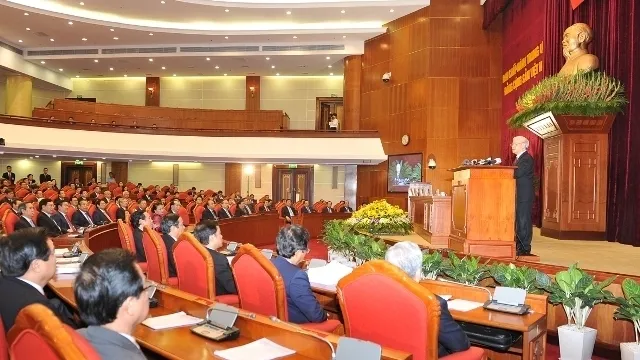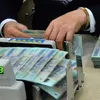Vietnam to disband regional steering committees in bid to downsize public sector

These three committees were established in 2004 to help the Politburo implement its policy on socio-economic development and defence in the country’s key border areas.
The decision was announced by General Secretary Nguyen Phu Trong on October 11 at the closing ceremony of the 12th Party Central Committee (PCC)’s sixth plenum during which the re-organisation of the political system was one of the main items on its agenda.
The PCC also agreed on merging the positions of the Party secretary and chairman of the People’s Committee at the commune and district level where appropriate and overhauling agencies within the political system to reduce the number of civil servants.
General Secretary Trong emphasised that re-organising the political machinery towards a smaller and more efficient system is a central and urgent task that seeks to synchronise political and economic reforms to meet the requirements of developing a socialist-oriented market reform and international integration.
Measures to be taken include stricter regulations on the number of civil workers, attracting talents to work in the public sector, increasing accountability, building a mechanism to control power and pushing through administrative reforms.
During the seven days of the meeting, the PCC also discussed Vietnam’s economic performance, public healthcare, the state of the population and personnel work.
The PCC members agreed that Vietnam’s economy continued to see positive developments in the first nine months of the year with GDP expanding by 6.41%, exports rising by 19.8% to US$154 billion and the manufacturing sector growing by 12.77%.
However, he pointed out that the economy is still facing many challenges as the fiscal deficit, public and bad debt remain high, and many State-owned projects are still struggling with inefficiencies.
He noted that in 2018 it is necessary to continue ensuring macroeconomic stability, renewing the growth model along with restructuring the economy, and enhancing workforce productivity and the competitiveness of the economy.
In his closing speech, the Party chief also urged greater reform to enhance the quality of public healthcare services so as to increase the Vietnamese people’s physical well-being, life expectancy and overall quality of life.
He stated that equal access to healthcare and insurance services must be ensured for everyone.
Concerning the state of the Vietnamese population, which has seen dramatic demographic changes as a result of globalisation, urbanisation, climate change and other social factors.
To deal with an aging population, the PCC agreed to step up the campaign to encourage each couple to have two children to maintain replacement fertility with a population size of around 104 million in 2030.
As part of the sixth plenum’s agenda, the PCC decided to dismiss Nguyen Xuan Anh as secretary of the Da Nang Party Committee and removed him from the PCC after Anh had been found to have committed serious violations.
General Secretary Nguyen Phu Trong said through this incident, he expected all Party members to frequently cultivate themselves and make the necessary corrections to avoid following the path of those disciplined.
He warned that those who violate Party regulations will be severely punished.
The PCC also elected Phan Dinh Trac, head of the Central Commission for Internal Affairs, and Nguyen Xuan Thang, director of the Ho Chi Minh National Academy of Politics as two new members of the Secretariat.




